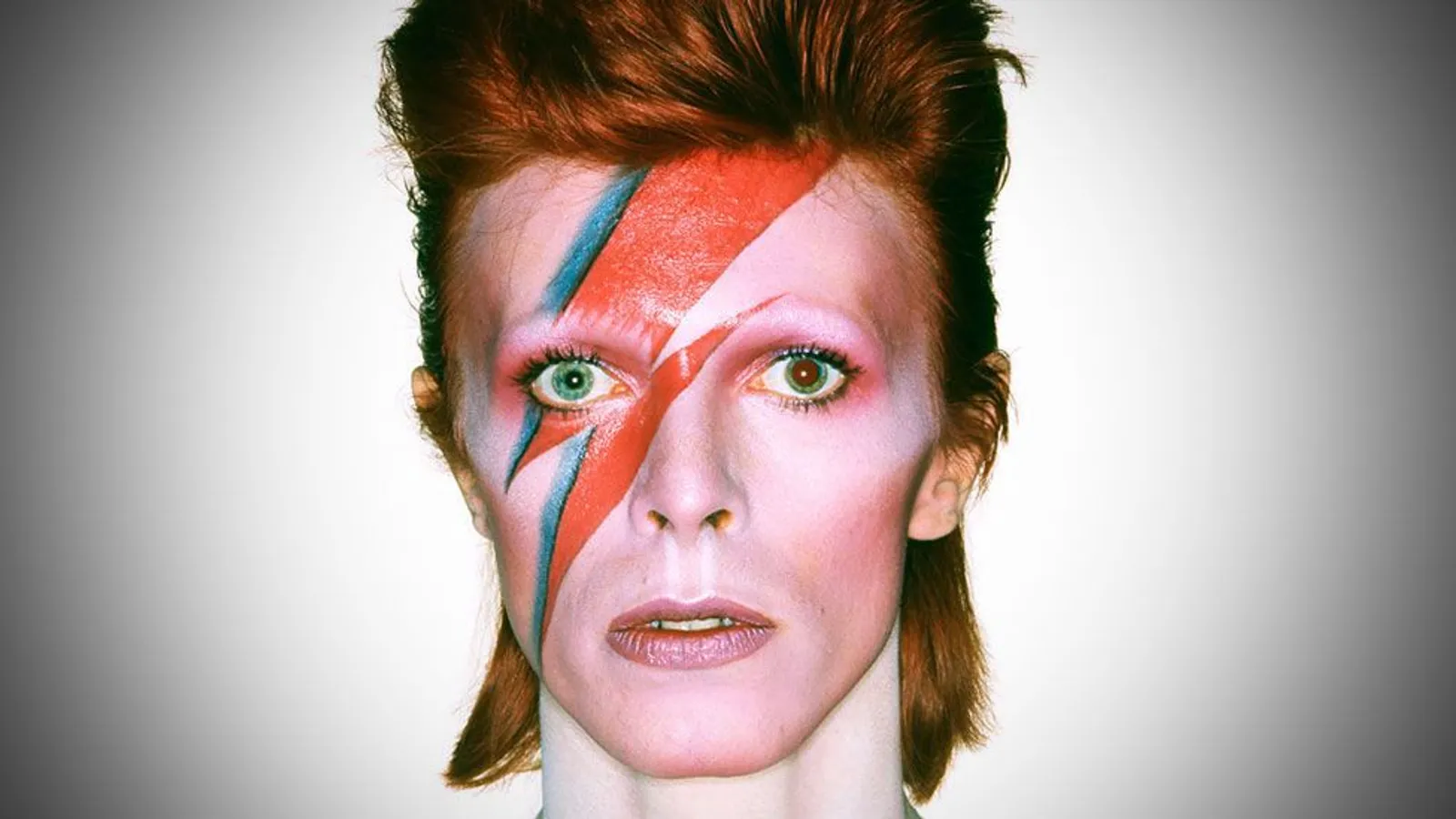David Bowie's death date remains a significant moment in music history, marking the passing of a legendary artist who redefined the boundaries of creativity and artistry. The world mourned the loss of a true icon when Bowie passed away on January 10, 2016. His sudden death shocked fans worldwide, leaving a profound impact on the music industry and pop culture.
Beyond his untimely death, Bowie's life and career were a testament to his unparalleled talent, innovation, and influence. This article delves into the details surrounding David Bowie's death date, exploring the circumstances surrounding his passing, his final works, and the legacy he left behind.
As we explore this topic, we will also take a closer look at Bowie's illustrious career, his contributions to music, and the lasting impact he had on generations of fans and fellow artists. Join us as we celebrate the life and legacy of one of the most iconic figures in music history.
Read also:Giannis Antetokounmpos Brother Francis The Rising Star In The Nba
Table of Contents
- David Bowie Biography
- Details of David Bowie's Death
- Bowie's Final Album: Blackstar
- Bowie's Battle with Cancer
- The Legacy of David Bowie
- Influence on Music and Pop Culture
- Tributes and Memorials
- Fan Reaction to David Bowie's Death
- Posthumous Awards and Honors
- Conclusion
David Bowie Biography
Early Life and Career
David Bowie, born David Robert Jones on January 8, 1947, in Brixton, London, was a musician, actor, and visual artist whose career spanned over five decades. From his early days as a saxophonist to becoming one of the most celebrated musicians of all time, Bowie's journey was marked by constant reinvention and innovation.
Below is a summary of his personal and professional life:
| Full Name | David Robert Jones |
|---|---|
| Date of Birth | January 8, 1947 |
| Place of Birth | Brixton, London, England |
| Occupation | Singer, Songwriter, Actor |
| Death Date | January 10, 2016 |
Details of David Bowie's Death
David Bowie's death date, January 10, 2016, came as a shock to the world. The news was announced just two days after the release of his final album, "Blackstar," which many fans now see as a poignant farewell. Bowie passed away at the age of 69 after a private battle with liver cancer.
According to reports, Bowie's death occurred at his home in New York City, surrounded by family and loved ones. The official cause of death was liver cancer, a condition that Bowie had kept private throughout his treatment.
Final Days
In his final days, Bowie focused on completing his artistic legacy. He worked tirelessly on "Blackstar," ensuring it would be a fitting conclusion to his illustrious career. The album's themes of mortality and transformation resonated deeply with fans, who now recognize it as a tribute to Bowie's life and artistry.
Bowie's Final Album: Blackstar
Released on January 8, 2016, "Blackstar" is widely regarded as one of David Bowie's most innovative and daring works. The album features complex compositions, experimental sounds, and lyrics that explore themes of death, spirituality, and legacy.
Read also:Dove Camerons Sexuality A Comprehensive Exploration
Key highlights from "Blackstar" include:
- "Blackstar" – A haunting nine-minute epic that sets the tone for the album.
- "Lazarus" – A deeply personal track that became an anthem for Bowie's fans.
- "Girl Loves Me" – A collaboration with Tony Visconti, showcasing Bowie's versatility.
Despite its somber themes, "Blackstar" was celebrated by critics and fans alike, earning Bowie his first number-one album in the UK.
Bowie's Battle with Cancer
David Bowie's battle with cancer remained a closely guarded secret until his death. According to reports, he was diagnosed with liver cancer in 2014 and underwent treatment while continuing to work on "Blackstar." Bowie's decision to keep his illness private allowed him to maintain his dignity and focus on his art.
Private and Public Life
Bowie's private life was marked by a commitment to his family and career. He married Iman, a Somali-American model, in 1992, and they had one daughter, Alexandria "Lexi" Zahra Jones. Bowie's close-knit family supported him throughout his illness, ensuring he could continue creating until the end.
The Legacy of David Bowie
David Bowie's death date may have marked the end of his physical presence, but his legacy continues to inspire new generations of artists and fans. Bowie's contributions to music, fashion, and visual art have left an indelible mark on popular culture.
Some of Bowie's most notable achievements include:
- 26 studio albums, including iconic works like "The Rise and Fall of Ziggy Stardust" and "Let's Dance."
- Over 140 million records sold worldwide.
- Influencing countless artists across genres, from rock to pop to electronic music.
Influence on Music and Pop Culture
David Bowie's influence extends far beyond the music industry. His groundbreaking performances, innovative fashion choices, and fearless approach to creativity have inspired generations of artists and fans alike. Bowie's ability to reinvent himself repeatedly made him a symbol of artistic freedom and self-expression.
Impact on Fashion
Bowie's fashion sense was as iconic as his music. From his flamboyant Ziggy Stardust persona to his minimalist later years, Bowie's style remains a source of inspiration for designers and fashion enthusiasts worldwide.
Tributes and Memorials
In the aftermath of David Bowie's death date, tributes poured in from around the world. Musicians, actors, and fans alike paid homage to the late icon through concerts, memorials, and social media tributes.
Notable tributes include:
- A star-studded tribute concert at the Barclays Center in Brooklyn.
- A statue of Bowie unveiled in his hometown of Brixton.
- Memorials held in cities across the globe, including London, New York, and Berlin.
Fan Reaction to David Bowie's Death
David Bowie's death date left fans reeling with grief. Social media platforms were flooded with heartfelt tributes, memories, and personal stories of how Bowie's music had impacted their lives. Fans gathered in cities worldwide to celebrate his life and legacy, ensuring his memory would live on.
Memorial Events
Memorial events were organized in cities where Bowie had lived and worked, including London, Berlin, and New York. Fans shared stories, played his music, and celebrated his contributions to art and culture.
Posthumous Awards and Honors
David Bowie's death date did not mark the end of his recognition. In the years following his passing, Bowie received numerous posthumous awards and honors, including:
- Two Grammy Awards for "Blackstar" in 2017.
- Induction into the Rock and Roll Hall of Fame (previously inducted in 1996).
- Recognition as one of the most influential musicians of all time by publications like Rolling Stone and Billboard.
Conclusion
David Bowie's death date, January 10, 2016, marked the end of an era but also the beginning of a new chapter in his legacy. Through his music, art, and influence, Bowie continues to inspire new generations of fans and artists. His ability to reinvent himself and push creative boundaries remains unmatched in the music industry.
We invite you to share your thoughts and memories of David Bowie in the comments below. Celebrate his life and legacy by exploring his music, fashion, and art. And don't forget to check out our other articles on iconic musicians and cultural figures.


